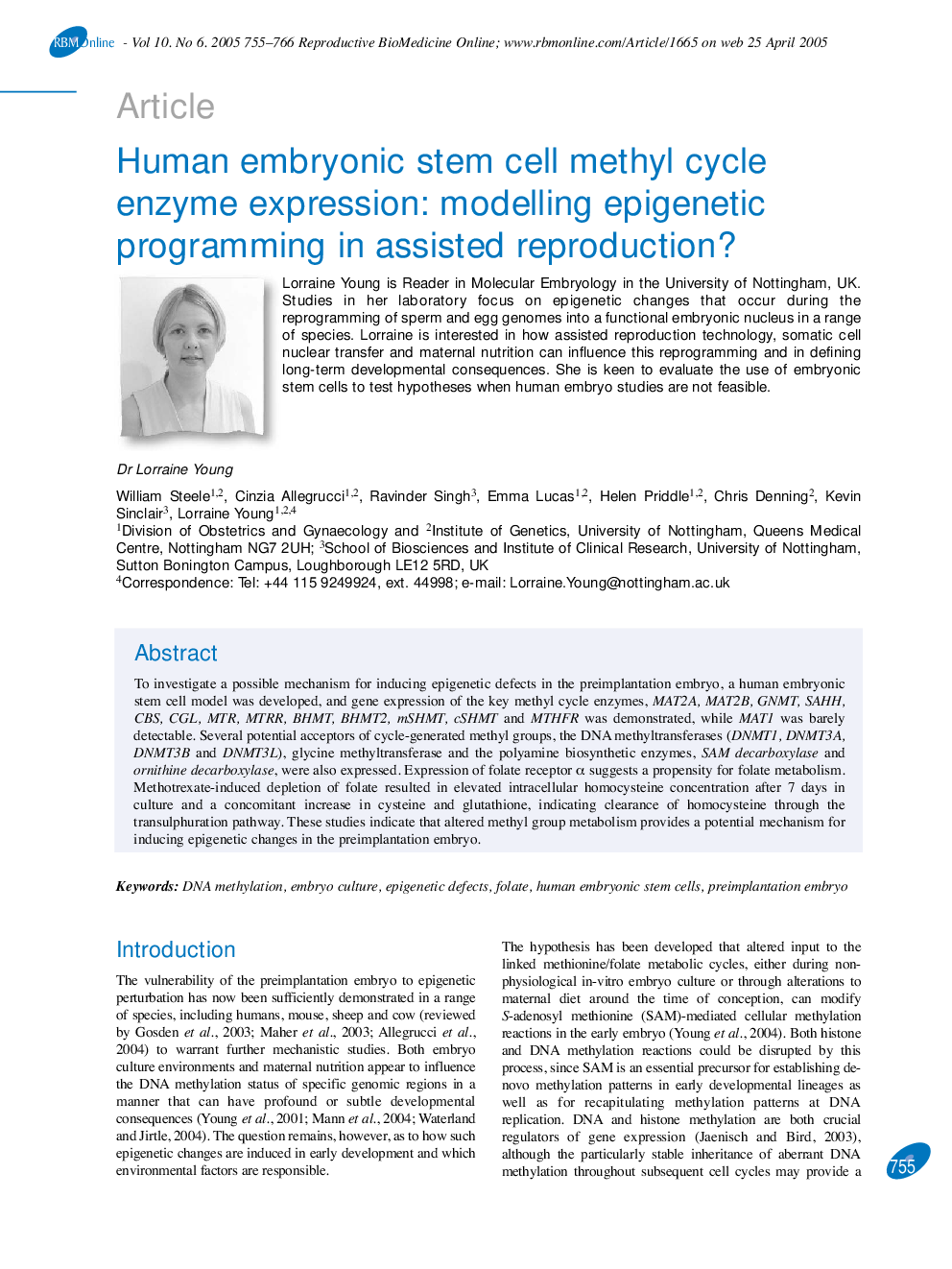| Article ID | Journal | Published Year | Pages | File Type |
|---|---|---|---|---|
| 9334855 | Reproductive BioMedicine Online | 2005 | 12 Pages |
Abstract
To investigate a possible mechanism for inducing epigenetic defects in the preimplantation embryo, a human embryonic stem cell model was developed, and gene expression of the key methyl cycle enzymes, MAT2A, MAT2B, GNMT, SAHH, CBS, CGL, MTR, MTRR, BHMT, BHMT2, mSHMT, cSHMT and MTHFR was demonstrated, while MAT1 was barely detectable. Several potential acceptors of cycle-generated methyl groups, the DNA methyltransferases (DNMT1, DNMT3A, DNMT3B and DNMT3L), glycine methyltransferase and the polyamine biosynthetic enzymes, SAM decarboxylase and ornithine decarboxylase, were also expressed. Expression of folate receptor α suggests a propensity for folate metabolism. Methotrexate-induced depletion of folate resulted in elevated intracellular homocysteine concentration after 7 days in culture and a concomitant increase in cysteine and glutathione, indicating clearance of homocysteine through the transulphuration pathway. These studies indicate that altered methyl group metabolism provides a potential mechanism for inducing epigenetic changes in the preimplantation embryo.
Related Topics
Health Sciences
Medicine and Dentistry
Obstetrics, Gynecology and Women's Health
Authors
William Steele, Cinzia Allegrucci, Ravinder Singh, Emma Lucas, Helen Priddle, Chris Denning, Kevin Sinclair, Lorraine Young,
